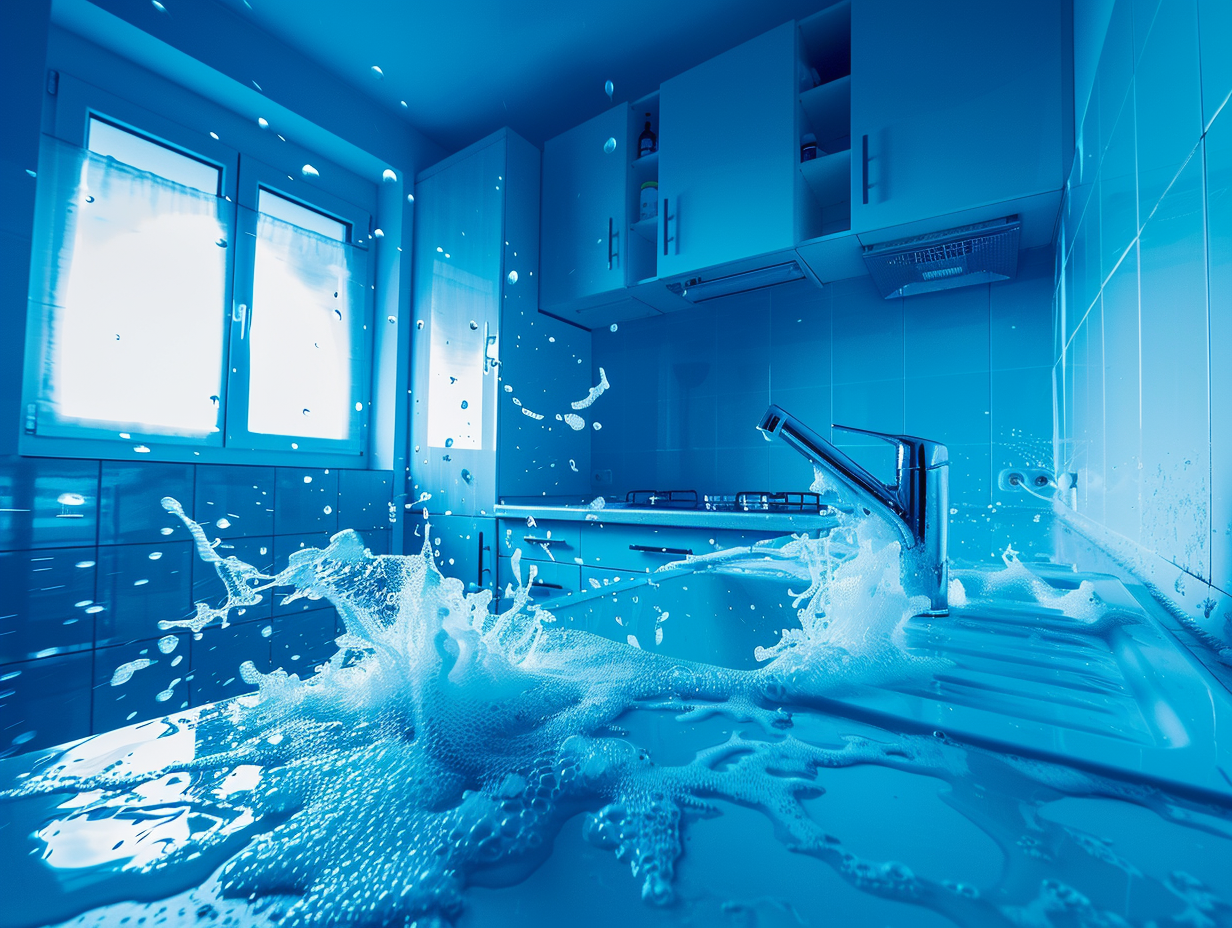A malfunctioning toilet can be a major inconvenience and disrupt your daily routine. Whether it's…

The Ultimate Guide to Plumbing: Everything You Need to Know
Plumbing is an essential component of any home or commercial building, ensuring the safe and efficient delivery of water and disposal of waste. Despite its importance, many homeowners and business owners know very little about their plumbing systems. This blog aims to demystify plumbing, providing you with a comprehensive guide to understanding, maintaining, and upgrading your plumbing system.
Why Plumbing Matters
Before diving into the specifics, it’s essential to understand why plumbing is so crucial:
- Health and Safety: Proper plumbing ensures clean water for drinking, cooking, and bathing, and safely removes waste.
- Convenience: Modern plumbing provides the comfort of hot showers, flushing toilets, and efficient waste removal.
- Property Value: A well-maintained plumbing system can significantly increase the value of your home.
- Environmental Impact: Efficient plumbing reduces water wastage and promotes the use of sustainable resources.
Components of a Plumbing System
A typical plumbing system consists of several key components:
- Pipes: Transport water to and from fixtures.
- Fixtures: Include sinks, toilets, showers, and appliances like dishwashers and washing machines.
- Drainage System: Removes waste water from the home.
- Valves: Control the flow of water.
- Water Heater: Provides hot water for daily use.
Common Plumbing Issues and Solutions
1. Leaky Faucets
Causes: Worn-out washers, O-rings, or seals.
Solution: Replace the faulty components. If you’re unsure how, it might be best to call a plumber.
2. Clogged Drains
Causes: Buildup of hair, soap, grease, or foreign objects.
Solution: Use a plunger or a drain snake. For persistent clogs, a professional plumber can use more advanced tools.
3. Running Toilets
Causes: Faulty flapper valve, fill valve, or overflow tube.
Solution: Inspect and replace the faulty parts. Toilet repair kits are available at most hardware stores.
4. Low Water Pressure
Causes: Pipe corrosion, leaks, or sediment buildup.
Solution: Identify the cause by checking different fixtures. Clean aerators and showerheads, or call a plumber to inspect for leaks or corrosion.
5. Water Heater Issues
Causes: Sediment buildup, faulty thermostat, or heating element.
Solution: Drain the tank to remove sediment or replace faulty parts. Regular maintenance can prevent most issues.
Tips for Maintaining Your Plumbing System
1. Regular Inspections
Regularly check for leaks, corrosion, and any signs of wear and tear. Early detection can save you from costly repairs.
2. Proper Disposal
Avoid flushing non-biodegradable items or pouring grease down the drain. Use strainers in sinks and tubs to catch hair and debris.
3. Insulate Pipes
In colder climates, insulate pipes to prevent freezing and bursting. Pipe insulation is a simple and effective way to protect your plumbing.
4. Water Heater Maintenance
Drain your water heater annually to remove sediment buildup. Check the pressure relief valve to ensure it’s functioning correctly.
5. Know Your System
Familiarize yourself with the location of your main water shut-off valve. In case of a major leak, shutting off the water can prevent extensive damage.
When to Call a Professional Plumber
While many minor plumbing issues can be resolved with DIY solutions, certain situations require professional intervention:
- Burst Pipes: Immediate professional help is needed to prevent extensive water damage.
- Sewage Backups: This is a serious health hazard that requires specialized equipment and expertise.
- Major Installations: Installing new fixtures, water heaters, or pipes should be handled by a professional to ensure compliance with building codes and safety standards.
- Persistent Issues: If you have recurring problems like clogs or leaks, a plumber can diagnose and fix the underlying cause.
Upgrading Your Plumbing System
1. Install Low-Flow Fixtures
Low-flow toilets, showerheads, and faucets can reduce water usage and save on utility bills.
2. Tankless Water Heaters
These provide hot water on demand, are more energy-efficient, and take up less space than traditional water heaters.
3. Smart Plumbing Devices
Leak detectors, smart water shut-off valves, and automated irrigation systems can help you monitor and control your water usage remotely.
4. Pipe Replacement
If you have old galvanized steel or polybutylene pipes, consider replacing them with modern materials like PEX or copper for better durability and performance.
Conclusion
Understanding your plumbing system and taking proactive steps to maintain it can save you from costly repairs and enhance the functionality and value of your home. Whether it’s handling minor repairs, knowing when to call a professional, or planning major upgrades, being informed about plumbing will help you make the best decisions for your property.
At Bronze Construction, we offer a wide range of plumbing services, from emergency repairs to comprehensive system upgrades. Contact us today for all your plumbing needs and let our team of experts ensure your system runs smoothly and efficiently.



